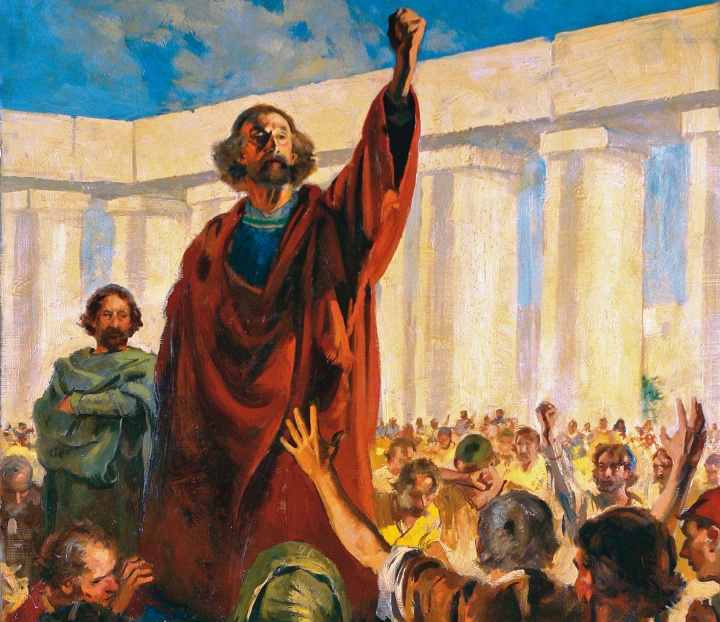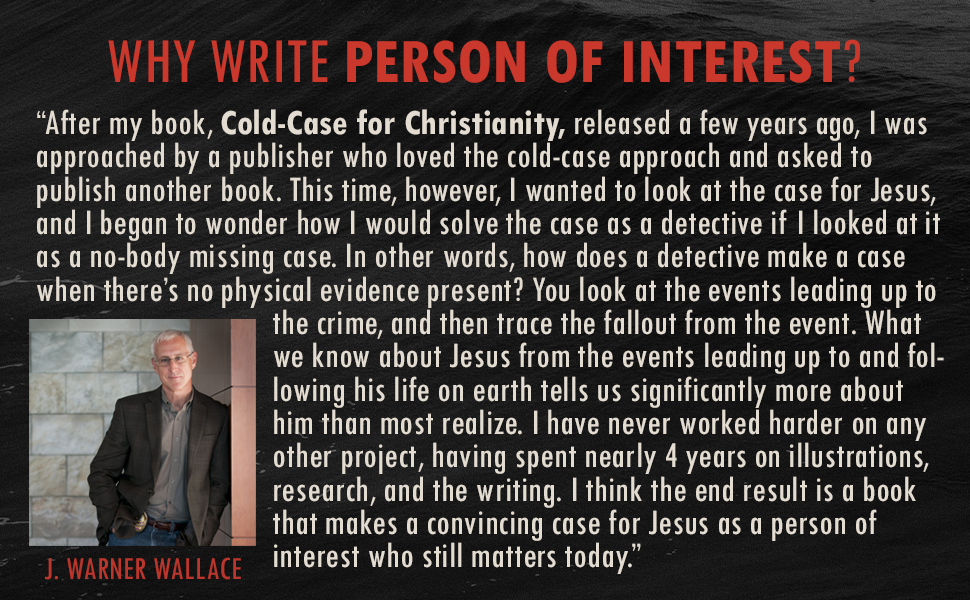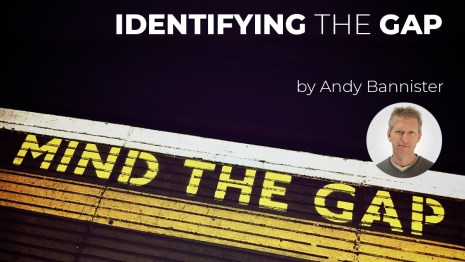- ABOUT
- ARGUMENTS – EXISTENCE OF GOD
- The Argument from Contingency
- Cosmological Argument
- Moral Argument
- Ontological Argument
- Teleological/Design/Fine-tuning Argument
- Pascal’s Wager
- The Argument from Religious Experience
- The Argument from Miracles
- The Argument from Consciousness
- The Argument from Truth
- The Argument from Desire
- The Argument from Aesthetic Experience
- HISTORICITY – RESURRECTION
- CHRISTIANITY & ISLAM
- APOLOGETICS
Stories that Shape Us – This year’s theme.
Join us this summer at the Oxford Union for a one-day event exploring life’s biggest questions through the lens of the Christian story. This isn’t just another story among many—it’s one that speaks to both mind and heart, grounded in reason and experience, and offering meaning, hope, and restoration. With talks, seminars, and plenty of live Q&A, we’ll create space for you to engage deeply and honestly.
Come with your questions— we would love to see you there!
Conference Info & registration: here
Date and Location
27-28 June | Venue: St John’s College Old Divinity School and the Round Church
About
The 2025 summer conference will explore the interplay between reason and imagination in apologetics and how we might commend and defend the gospel in our rapidly changing culture.
The conference will help us to engage thoughtfully with culture and the questions of our friends through creativity in science, the arts and everyday practice.
Info & Registration: here
Whether we realize it or not, everyone has a worldview. It’s your set of beliefs about the way the world actually is. It’s your picture of reality. And this belief system helps you answer the big questions of life: Where did I come from? What’s wrong with the world? Is there a solution? Why am I here?
Christianity is a worldview, but it’s not the only worldview. It has competition. So how do we know which worldview, if any, is actually true?
The answer isn’t complicated: Check to see if it matches up with reality.
At STR’s Reality Conference, we show students that Christianity matches up with the way the world really is—with reality. It makes sense of the origin and design of the universe and life; the existence of objective truth and morality; the purpose, meaning, and value of human experience; the life, death, and resurrection of Jesus; and the existential longing of every human heart. In other words, we have reality on our side.
Unfortunately, many students are under the impression that Christianity is make-believe for grown-ups. At REALITY, we’re changing that by using our greatest ally: Reality. Christianity isn’t a made-up story divorced from reality; it is the true story of reality.
So join us at one of our two-day REALITY conferences in California, Washington, Minnesota, Texas, Pennsylvania, or Georgia. And discover why we believe Christianity is the best explanation of the way things are.
I recently had the privilege of partnering with a local church in equipping their members to be intentional, effective ambassadors for Christ. The equipping tool that I used at this church was Mark Mittelberg’s course, Contagious Faith-Discover Your Natural Style for Sharing Jesus with Others.
Mark Mittelberg, the founder of the Contagious Faith course, makes clear what the goal of the course is:
“The goal of the Contagious Faith Training Course is to inspire and equip you and your group to share your faith with others in ways that are natural and fruitful. But the ultimate goal is not just to inform our friends about spiritual matters. Rather, it is to help them put their faith in Christ as their leader, forgiver, and king. How will we do this? By helping you discover and deploy your Contagious Faith Style, while you learn and grow in a number of Key Skill areas, that with the guidance of the Holy Spirit, will make you increasingly effective at communicating your beliefs to others.”
I saw first hand just how effective the Contagious Faith course course is as the attendees discovered their natural evangelism style, which in turn, gave them confidence to initiate spiritual conversations with friends, neighbors, colleagues at work, etc. Many found this new found confidence to be liberating in dispelling the fears that they previously had about reaching out to those around them with the Gospel.
We worked our way through the six-session course over six weeks. The course format includes a 20-25 minute video for each session in which Mark Mittelberg introduces and unpacks one of the five evangelism styles. He explains in a down-to-earth fashion several key skills to develop for talking about Jesus effectively, illustrating his message with real-life accounts of ordinary believers who applied these principles for extraordinary impact. Each video presentation includes Mark’s own personal witnessing testimonies as well as guest evangelists (such as Lee Strobel), which assists in conceptualizing and demonstrating the application of each style. The Contagious Faith Study Guide was essential in maximizing the impact of the course as it included Group Interaction/Activities in which the participants paired up and practiced the evangelism style presented at that session. These exercises were instrumental in the class participants gaining confidence in initiating and navigating spiritual conversations that would lead to the presentation of the Gospel.
Contagious Faith introduces five approaches to evangelism that helps you determine which of them fit best with your unique personality and style:
Friendship-Building
Selfless-Serving
Story-Sharing
Reason-Giving
Truth-Telling
Selfless-Serving
Story-Sharing
Reason-Giving
Truth-Telling
I highly recommend Contagious Faith, as it will equip you and your church to share God’s love with others in a way that is authentic, comfortable, and impactful.
As disciples of Christ, we are called to share the gospel, but few of us are naturally comfortable with evangelism. We wrestle with internal fears, a lack of preparation, and the sense that reaching out to others might force us to act like someone we’re not. Contagious Faith is a helpful resource for learning to leap the hurdle of fear and replace it with confidence to reach out to others.
With inspiring stories, fresh approaches, and timeless biblical wisdom, Contagious Faith will equip the church to make a spiritual impact in the lives of the people around us—even in our increasingly resistant culture.
(NOTE): As there are Q & A and discussion segments throughout the course, I would suggest that the person conducting the course be someone who is an experienced evangelist who can navigate the Q & A time as well as having their own evangelism experiences to draw on.
Traits of the 5-Faith Sharing Styles-Contagious Faith Video Series-Mark Mittelberg
Dispelling Counterfeits Conference-Women in Apologetics-June 9 & 10, 2023–Anaheim, California, USA–This year’s theme, inspired by 1 Corinthians 15, is Orthodoxy: Dispelling Counterfeits. Through extensive sessions, our speakers will focus on identifying the core tenets of orthodoxy (historic Christianity), how the orthodox worldview compares to others, why correctly understanding the Bible is essential, and the character and nature of God the Father, Son, and Holy Spirit.
Whether in person or online, this year’s conference will offer plenty of opportunities for learning and fellowship with like-minded Christians.
For Conference info, click here
Fear. Anxiety. Frustration. We all feel it. There are some topics that feel off-limits unless you want to get labelled or cancelled. Controversial cultural issues are affecting the dynamics of family, school, work, and church. We’d rather avoid talking about them, but not talking isn’t helping. Christians are called to be the light of truth and show the love of God. This is no easy task, and, to do it well, we need to talk.
Apologetics Canada Conference is back this year to do just that. We will discuss the most pressing cultural issue of the day—identity. Register today and join the conversation.
For Conference information, click here
I would like to present a ‘template,’ if you will, as to how we can reach out to our Muslim neighbors, friends, and new acquaintances during this Christmas season.
I’ll be drawing on Paul’s approach when addressing the Athenians at the Areopagus in Acts 17.
Paul’s first step was to affirm what he could affirm so as to build a bridge between his message and the listeners:
So, Paul, standing in the midst of the Areopagus, said: “Men of Athens, I perceive that in every way you are very religious.
For as I passed along and observed the objects of your worship, I found also an altar with this inscription: ‘To the unknown god.’
What therefore you worship as unknown, this I proclaim to you. (Acts 17:22–23 ESV)
For as I passed along and observed the objects of your worship, I found also an altar with this inscription: ‘To the unknown god.’
What therefore you worship as unknown, this I proclaim to you. (Acts 17:22–23 ESV)
Notice that Paul did his homework. He “walked around” and meticulously examined the culture he
sought to reach with the Gospel. In his search, he found a starting point, a place where he could
begin to build a bridge between something familiar to his audience and the Gospel: their religiosity
and their worship of an unknown god.
Paul’s method in Athens is instructive. He understood the culture and employed that knowledge to identify a starting point for building a bridge to the Gospel. In applying Paul’s evangelistic approach to the Athenians, we to can consider “our Athens”— the cultural and religious context of our Muslim friends and how we too can build a bridge to the Gospel during this Christmas season.
Alan Shlemon, author and speaker for Stand to Reason (str.org), offers a “bridge building” methodology in line with that of the Apostle Paul, as to how we can understand and begin with the Muslim (mis)-understanding of Jesus (Isa in the Qur’an). In his article, “What Muslims Miss About Christmas” he offers insights into how to build the bridge to who Jesus truly is—”the Word made flesh…the only Son from the Father, full of grace and truth.” (John 1:14):
Muslims are going to miss Christmas this year. I don’t mean they won’t celebrate on December 25. Rather, they’ll miss what Christmas is all about
—when the Word (the second person of the Trinity) took on humanity.
—when the Word (the second person of the Trinity) took on humanity.
Remember, Muslims do believe in Jesus. They believe He’s a man, a mere mortal like Moses or Mohammed. Although they call him a prophet, they don’t believe He has a divine nature, is the Son of God, or is the second person of the Trinity. In fact, they reject the Trinity altogether. This is a massive theological difference from Christianity.
The Muslim version of Jesus turns out to be the worst case of mistaken identity in all human history. That’s because Islam has a meritorious-based system of salvation. A Muslim’s ability to get into heaven is evaluated on the weight of their good and bad deeds. That’s not good news. By denying the God-man Jesus, Muslims miss out on the meaning of Christmas. God becomes man, lives the perfect life that we couldn’t live, and dies as a substitute for us. He does for us what we couldn’t do for ourselves. That’s what makes Christmas so merry.
This month is a perfect opportunity to tell our Muslim friends the story of Christmas. Since Jesus already holds an esteemed position in Islam, we already have
a head start. Muslims believe He exists and plays a major role in their faith. We just need to show them how the Christmas story is something worth rejoicing about.
Finally, one of the most important things we can do for our Muslim friends is to invite them to a Christmas celebration at our home church, or a church in the area
that is offering a biblically-based presentation/celebration of Christmas. I often challenge my Muslim friends to attend church with me, letting them know that I
have visited a number of mosques, have had conversations with the Imam, etc., and now I am offering them the opportunity to return the favor by attending my church so they will come to a better understanding of what the Christian faith is about. When Claire and I brought a family from Iran with us to church, the reaction was tears of joy
and comments such as, “I have never felt such love.”
May our almighty Triune God empower us to be His intentional ambassadors this Christmas Season!
To a blessed & fruitful Christmas,
Lane
Resources
Backyard Missionaries: How These Christians Are Reaching Muslims at Christmas—Video/article—CBN, here
Connecting with Muslims at Christmas Time—Podcast—Crescent Project founder and CEO Fouad Masri shares
thoughts and ideas about connecting with Muslims during the Christmas season, here
What Muslims Miss About Christmas—by Alan Shlemon, here
Christmas is Christmas Because Jesus is God—by J. Warner Wallace, here
The Cost Muslims Pay for Missing Jesus—by Alan Shlemon, here
Sharing Truth with Your Muslim Friend—by Alan Shlemon, here
Tell Muslims Jesus in the Son of Man—by Alan Shlemon, here
Introduction: Before introducing J. Warner Wallace’s new book, I want to express my thankfulness and gratitude to him for his ministry. I consider J. Warner Wallace a mentor to me, as I have greatly benefited from his ministry personally as a teacher, as well as equipping me to be a more effective ambassador for Christ to the unbelievers I meet on a daily basis. His insight and methodology have been particularly helpful when presenting the Gospel to my Muslim friends regarding the reliability of the Gospels, etc. Each of James’ books; Cold-Case Christianity—A Homicide Detective Investigates the Claims of the Gospels; God’s Crime Scene—A Cold-Case Detective Examines the Evidence for a Divinely Created Universe, and Forensic Faith—A Homicide Detective Makes the Case for a More Reasonable, Evidential Christian Faith, are essential resources for enhancing our effectiveness as Christ’s ambassadors in the cultural milieu of today. For more on the ministry of J. Warner Wallace go to: coldcasechristianity.com and his Youtube channel, here.
Now, onto James’ new and upcoming book…
In this day and age of skepticism, which is extreme at times, the Bible, and particularly the New Testament is often dismissed ‘out-of-hand.’ But what if a case could be made outside the Bible for Jesus as THE person of interest, THE person who is the most significant person in history, and whose impact upon the world changed everything? In his new milestone book, Person of Interest—Why Jesus Still Matters in a World That Rejects the Bible, J. Warner Wallace demonstrates how Jesus (and Christianity) changed every aspect of the world, from science to art, from music to education and literacy. As Wallace carefully sifts through the evidence from history alone, without relying on the New Testament, you’ll be taken on a journey like never before as to how Jesus, the most significant person in history, changed the world in ways that no other person has. How can this be, you may ask? Wallace’s conclusion is, “Maybe it’s because he is not a person at all. If God came into His creation, I would expect this kind of impact…He matters because He changed everything. And the only way someone with this kind of beginning can change everything is if He’s something more than human.”
Release Date of Person of Interest-Sept. 21, 2021
For more details on how to pre-order Person of Interest, go to the Person of Interest website at: personofinterestbook.com
If you pre-order before Sept. 21, 2021 you will receive:
• 8 Printable Bible inserts
• Exclusive ebook: “Is Jesus a Copy-Cat Savior?” (32 pages)
• Exclusive video: “How Jesus Changed Science Forever”
• 40% OFF Discount Code for Our Exclusive, Private Community
Features of Person of Interest:
As a cold-case detective, Wallace uncovers the truth about Jesus using the same approach he employs to solve real murder cases
Marvel at the way Jesus changed the world as you investigate why Jesus still matters today.
Learn how to use an innovative and unique “fuse and fallout” investigative strategy that you can also use to examine other claims of history.
Explore and learn how to respond to common objections to Christianity.
Detective J. Warner Wallace listened to a pastor talk about Jesus and wondered why anyone would think Jesus was a person of interest.
Marvel at the way Jesus changed the world as you investigate why Jesus still matters today.
Learn how to use an innovative and unique “fuse and fallout” investigative strategy that you can also use to examine other claims of history.
Explore and learn how to respond to common objections to Christianity.
Detective J. Warner Wallace listened to a pastor talk about Jesus and wondered why anyone would think Jesus was a person of interest.
In Person of Interest, Wallace describes his own personal investigative journey from atheism to Christianity as he carefully considers the evidence. Creative, compelling, and fully illustrated, Person of Interest will strengthen the faith of believers while engaging those who are skeptical and distrusting of the New Testament.
“The stunning conclusion of the master cold-case homicide detective’s meticulous research, analysis, and deliberation will leave Christians delighted and skeptics devastated.”—Greg Koukl, President of Stand to Reason (str.org) and author of Tactics
“Wallace has an uncanny ability to discover clues where no one else sees them. Now he tackles perhaps his toughest case ever: solving a deeply personal mystery involving his own religious faith.”—ROBERT DEAN, producer of NBC News Dateline
“A creative and eye-opening work. You’ll be captivated as Wallace takes you on a thrilling journey of discovery.”
—LEE STROBEL, bestselling author of The Case for Christ
“If you read this book, you will have to reckon with Jesus, not just as a historical person but as Lord and Savior. This is not your typical apologetics book!”
—ALISA CHILDERS, author of Another Gospel
“Bring your doubts, bring your skepticism–but if you bring them in open-minded honesty…be prepared to render a shocking verdict.”
—SCOTT HANSON, host of NFL RedZone
James Warner Wallace is an American homicide detective and Christian apologist. Wallace is a Senior Fellow at the Colson Center for Christian Worldview and an Adjunct Professor of Apologetics at Biola University in La Mirada. He holds a Masters Degree in Theological Studies and a Masters Degree in Architecture from UCLA.
Jesus: Person of Interest—Intro presentation to the book, Person of Interest—by J. Warner Wallace
If you are truly interested in taking full ownership of your ambassadorship for Christ (Rom. 5:20) by becoming equipped so you will “always be[ing] prepared to make a defense to anyone who asks you for a reason for the hope that is in you; yet do it with gentleness and respect,” then the Solas Centre for Public Christianity is for you! The Solas site offers the following introduction:
Solas Centre for Public Christianity is a ministry organisation based in Scotland. We are persuasively communicating the transforming truth of who Jesus is and empowering Christians to do the same.
On our website, you can find more about what we do, including:
Reports on our popular evangelistic events in places like cafes, restuarants, pubs, and business settings
Information on our training events, like our Confident Christianity conference that is on tour across the country.
Information on our training events, like our Confident Christianity conference that is on tour across the country.
Also on our website you’ll find a wide range of video, audio and written resources which:
Present the gospel and answer objections to the Christian faith
Help Christians share their faith in a winsome, rational and persuasive manner
Help Christians share their faith in a winsome, rational and persuasive manner
Introducing SolasCPC-The Solas CPC Youtube Channel, here
There are two sections on the Solas website that I would like to highlight-these are, Mind the Gap and Frontlines. But please don’t limit yourself to these two sections. Take time to peruse the entirety of the site and avail yourself of the abundance of equipping resources that this site provides. And while you are there, be sure to sign up for their newsletter, and if the Lord so leads, send a donation to support the Solas ministry.
Mind the Gap is a series of instructive articles dealing with the question: What is holds you back from evangelism? Each article addresses a particular challenge to the Christian that is impeding them from embracing an evangelistic lifestyle.
Frontlines-Christians Sharing Their Faith at Work, is a series of interviews with Christians who have stepped out of their ‘comfort zone’ and are sharing their faith with their colleagues in the work place. Real life, every day, evangelism testimonies of lives changed through ambassadors for Christ, “God making His appeal through them.” (Rom. 5:20)
Jesus said that we should “therefore pray earnestly to the Lord of the harvest…” (Matthew 9:38). The Greek word for earnestly is deomai, which means; desire, long for, ask, beg. So, when we pray to the Lord of the harvest, we should pray in earnest with strong desire, a longing for, and yes, even begging in faith for the lost and for laborers, placing our trust in the trustworthiness of the One in whom we believe.
The New Testament Model: Prayer that Leads to Evangelism
Armin Gesswein, known as “the apostle of prayer and revival,” explains the inseparability of prayer and evangelism in the New Testament:
“Prayer is the lifeline of New Testament evangelism, the oxygen for its holy fire. The New Testament was born in prayer.
It knows no evangelism without prayer, and no prayer which does not lead to evangelism.” (1)

It knows no evangelism without prayer, and no prayer which does not lead to evangelism.” (1)
Samuel Zwemer, known as the “apostle to Islam” understood the need for prayer and proclamation:
“We must not forget that the supreme ministry is the ministry of prayer. It is possible for all everywhere and at all times; it is an omnipotent ministry.”
“We pray for our friends and relatives. But do we ever evangelize them? It is so much easier to talk about them to Christ than to talk to them, about Christ.”
“If faithfully, fearlessly, sympathetically, we preach Christ crucified, He can make the stumbling block of the cross a stepping stone for the Muslims into His kingdom…more than this, the cross will win their love if rightly preached.”
Praying evangelistically
If we truly care about our Muslim friends, neighbors, co-workers, and fellow students, our prayers for them will be two-fold:
1) We should pray for our Muslim friends that God might do a mighty work in them that they may come to the “knowledge of the truth” and be saved (John 6:37, 44).
2) We should pray earnestly that the “Lord of the harvest will send out laborers into His harvest” (Matthew 9:39)—these laborers would include you and me, and our brothers and sisters in Christ, that we may speak boldly, with gentleness and respect, to the lost where they are.
2) We should pray earnestly that the “Lord of the harvest will send out laborers into His harvest” (Matthew 9:39)—these laborers would include you and me, and our brothers and sisters in Christ, that we may speak boldly, with gentleness and respect, to the lost where they are.
First, we begin by praying for the lost
The apostle Paul wrote in 2 Thessalonians 3:1, “Finally, brothers, pray for us that the message of the Lord may spread rapidly and be honored, just as it was among you.” Paul specifically asked the church in Thessalonica to pray for another people group! He asked those who had previously received the gospel to pray for others to receive and honor the gospel. So, we see that this is not a novel idea. It has been around a long time and is the first prong of the New Testament model in bringing unbelievers to Christ.
A helpful acronym to use as a prayer model is H.E.A.R.T. (2):
H—Receptivity of Heart and opening of the mind—We must pray that the Holy Spirit will begin ‘tilling the ground’ of the Muslim heart and opening their mind to the truth (Proverbs 16:1), so that when they hear God’s Word, the seed will fall on ground that is prepared and receptive. This preparation may begin with a dream, or through the realization that Muhammad lacked the character and conduct of a godly man, or receiving a copy of the New Testament and experiencing Jesus for the first time, or that the Qur’an offers no assurance of salvation, etc. As one Muslim background believer stated, “Only when I read the Qur’an in my own language, did I realize how lost I was.” Another Muslim background believer said, “I received a Bible…days later, I started reading the New Testament and fell in love with the character of Jesus. As a Muslim, I knew of Jesus, but I was unfamiliar with the miracles he had performed and the claims he had made about his status as God’s Son. Within months, I had read the Bible in its entirety. Then I read it a few more times. The more I read, the more I saw God as my true and loving Father.”
E—That God would open the spiritual Eyes of our Muslim friends. As Paul presented his commission from the Lord to king Agrippa, “to open their eyes and turn them from darkness to light, and from the power of Satan to God, so that they may receive forgiveness of sins and a place among those who are sanctified by faith in Me” (Acts 26:18). As Samuel Zwemer noted, “He (the Muslim) needs to be taught Christianity and brought into the light of Bible truth. He needs to recognise the dangerous errors of his religion and turn to Christianity as the true light from heaven.”
A—God’s Attitude towards sin. Muslims reject the doctrine of original sin, and as such believe that sin is not hereditary and no one is born a sinner. Islam’s view of sin explains why Muslims reject the Christian doctrine of Christ’s atoning sacrifice. We need to pray that the Holy Spirit will convict our Muslim friends of their sin (John 16:8–11), and reveal to them their lostness and hopelessness without the “one mediator between God and men, the man Christ Jesus, who gave himself as a ransom for all” (1 Timothy 2:5–6).
R—Released to know and trust Christ. Jesus affirmed His messianic mission of releasing the spiritual captives and oppressed: “The Spirit of the Lord is upon me, because he has anointed me…to proclaim liberty (release/freedom) to the captives…to set at liberty (release) those who are oppressed” (Luke 4:18). We must pray that our Muslim friends will be released from seeing Isa/Jesus as only a prophet, and that their eyes will be opened to see Jesus for who He truly is, the Jesus of the New Testament who is “the Way, the Truth and the Life” (John 14:6). Then Jesus said, “If you abide in my word, you are truly my disciples, and you will know the truth, and the truth will set you free…So if the Son sets you free, you will be free indeed.” (John 8:31–32; 36)
T—A life Transformed by the Gospel. 2 Corinthians 5:17 reminds us that “if anyone is in Christ, he is a new creation; the old has gone, the new has come.” And in Colossians 3 we are told, “and have put on the new self, which is being renewed in knowledge after the image of its creator. Here there is not Greek and Jew, circumcised and uncircumcised, barbarian, Scythian, slave, free; but Christ is all, and in all (v. 10–11). Once our Muslim friends have come to faith in Christ, we need to pray that He will bestow upon them the courage and perseverance to follow Jesus, even when it potentially means loss of family, future, or even life.
Second, “…therefore pray earnestly to the Lord of the harvest to send out laborers into his harvest.” (Matthew 9:38)
Pray for Workers—this is our most basic prayer.
“Then he said to his disciples, “The harvest is plentiful, but the laborers are few; therefore, pray earnestly to the Lord of the harvest to send out laborers into his harvest.” (Matthew 9:37-38)
“Do you not say, ‘There are yet four months, then comes the harvest’? Look, I tell you, lift up your eyes, and see that the fields are white for harvest.
Already the one who reaps is receiving wages and gathering fruit for eternal life, so that sower and reaper may rejoice together. For here the saying holds true,
‘One sows and another reaps.’ (John 4:35–37)
Jesus could not have been clearer—it is never the harvest that is lacking, the lack is in the labor force, and this is where Jesus says to focus our prayers. We must strive to be imitators of Paul as he was of Christ (1 Corinthians 11:1; 4:16) by taking up our office of ambassadorship, “Therefore, we are ambassadors for Christ, God making his appeal through us” (2 Corinthians 5:20). Let us not say, “Here I am Lord, send my brother or sister,” but instead, let us boldly claim as Isaiah did, “And I heard the voice of the Lord saying, ‘Whom shall I send, and who will go for us?’ Then I said, ‘Here I am! Send me’” (Isaiah 6:8).
Paul as he was of Christ (1 Corinthians 11:1; 4:16) by taking up our office of ambassadorship, “Therefore, we are ambassadors for Christ, God making his appeal through us” (2 Corinthians 5:20). Let us not say, “Here I am Lord, send my brother or sister,” but instead, let us boldly claim as Isaiah did, “And I heard the voice of the Lord saying, ‘Whom shall I send, and who will go for us?’ Then I said, ‘Here I am! Send me’” (Isaiah 6:8).
We must pray that the Lord will raise up more laborers in the Church, that more and more Christians will embrace the compassion for the lost that both Jesus and Paul manifested (Matthew 9:36; Romans 10:14-15), and that this compassion will translate into ambassadorship leading to an authentic and accurate presentation of the Gospel to our unbelieving friends and those we meet.
Pray for Boldness—”And when they had prayed, the place in which they were gathered together was shaken, and they were all filled with the Holy Spirit and continued to speak the word of God with boldness” (Acts 4:31).
As Armin stated, “The New Testament was born in prayer. It knows no evangelism without prayer, and no prayer which does not lead to evangelism.”
The Greek word for boldness/boldly is parresia, the definition of which is: freedom in speaking, openly, frankly, without ambiguity, free and fearless confidence, cheerful courage, with assurance. It is used 10 times in the book of Acts and is related to a bold proclamation of the Gospel.
In regards to proclaiming the Gospel boldly and/or fearlessly, Paul, asked for prayer so that, “whenever I open my mouth, words may be given me so that I will fearlessly make known the mystery of the gospel, for which I am an ambassador in chains. Pray that I may declare it fearlessly, as I should” (Ephesians 6:18-20).
We’ve all been in potential witnessing situations where we ‘chickened out’ under pressure, or have quenched the prodding of the Holy Spirit and later regretted it. Our petition in prayer should be that we will walk in the calling of an ambassador for Christ, one that is empowered by the Holy Spirit to speak boldly and fearlessly, “God making His appeal through us.” (Acts 1:8)
Pray for Opportunities—Sometimes we need to pray that God will create an opportunity where none exists. In Colossians 4 Paul said, “And pray for us, too, that God may open a door for our message, so that we may proclaim the mystery of Christ, for which I am in chains” (v. 3). This also applies to our witness to Muslim co-workers, neighbors, fellow-students and friends. When no opportunity exists to share our faith, we must pray for God to “open a door” in our conversations that will give us an opportunity to speak for Christ. This means that we must take the first step in beginning the conversation and building a relationship with our Muslim neighbor that will lead to a trusting friendship in which the opportunity to share the Gospel will become a reality.
Pray for Clarity— Paul mentions this in Colossians 4:3-4 “At the same time, pray also for us, that God may open to us a door for the word, to declare the mystery of Christ, on account of which I am in prison— that I may make it clear, which is how I ought to speak.” Clarity means presenting the gospel in a manner that makes sense to those who hear it. Our prayer should be, “Lord, help me to speak your truth so that this lost person will know what I am talking about.” Paul presents a succinct model to follow in Colossians 4:6— “Conduct yourselves with wisdom toward outsiders, making the most of the opportunity. Your speech must always be with grace, as though seasoned with salt, so that you will know how you should respond to each person.”
Peter affirms Paul’s approach when he told the early Church to “always be prepared to make a defense to anyone who asks you for a reason for the hope that is in you” (1 Peter 3:15). In order to give a reasoned and culturally relatable Gospel presentation, we should be dependent on the power and wisdom of the Holy Spirit, as well as doing our part in preparation through study, course work, etc., that we may better understand the culture and religion of those we are engaging. This will result in meaningful and spiritual conversations in which we can offer a clear and authentic presentation of the Gospel.
David Garrison’s challenge to each of us
The single most significant thing Christians have done to stimulate the current wave of Muslim movements to Christ is to prayerfully
and obediently engage them with the love and gospel of Christ. This remains the most significant step each of us can take today.
Discover for yourself what God is doing and how he is doing it.
Then ask yourself,
1) How can I be a part of what God is doing?
2) What is my role?
3) How can I contribute?(3)
2) What is my role?
3) How can I contribute?(3)
Conclusion
When considering David Garrison’s challenge, Paul’s address to the Athenians in Acts 17 came to mind:
And he made from one man every nation of mankind to live on all the face of the earth, having determined allotted periods and the boundaries of their dwelling place, that they should seek God, and perhaps feel their way toward him and find him, yet he is actually not far from each one of us…” (Acts 17:26–27)
As we pray that our Muslim friends would “seek God, and feel their way toward him,” we know that He is “not far from each one of them,” both in His creation and the revelation of Himself in the person of Christ and the Bible. However, and this is where we enter the picture, He is also “not far from each one of them,” because you and I are near to them as their neighbors, their colleagues in the workplace, their fellow-student at the university, the cashier at our favorite coffee shop, etc. We must see ourselves as an integral part of the answer to our prayers that Muslims will come to Christ, for we are Christ’s ambassadors, God making His appeal through us! As Paul stated clearly:
How then will they call on him in whom they have not believed?
And how are they to believe in him of whom they have never heard?
And how are they to hear without someone preaching?
And how are they to preach unless they are sent?
As it is written, “How beautiful are the feet of those who preach the good news!” (Romans 10:14–16)
And how are they to believe in him of whom they have never heard?
And how are they to hear without someone preaching?
And how are they to preach unless they are sent?
As it is written, “How beautiful are the feet of those who preach the good news!” (Romans 10:14–16)
“Evangelism without intercession is like an explosive without a detonator and intercession without evangelism is like a detonator without an explosive.”-Reinhard Bonnke, renowned German evangelist and missionary to Africa, and founder of Christ For All Nations.
Why Are More Workers Needed to Reach Out to Muslims-Fouad Masri-Crescent Project
(This article can also be found at Fellowship of Faith for the Muslims (FFM), here)
References
1. Armin Gesswein, known as “the apostle of prayer and revival,” and founder of Revival, Prayer, Fellowship, Inc. RPF website, here
2. Dr. Ray Prichard, Praying for the Lost—I Timothy 2:1-6, complete article found here
3. David Garrison, A Wind in the House of Islam, WigTake Resources, 2014, pg. 255, 261
Resources
Fellowship of Faith for the Muslims-FFM Website, here
Prayercast website, here
SIM—Pray for Muslims—SIM website, here
Evangelism to Muslims-Resources, here
It’s time to get uncomfortable and move outside our ‘comfort zone-by Lane, here





